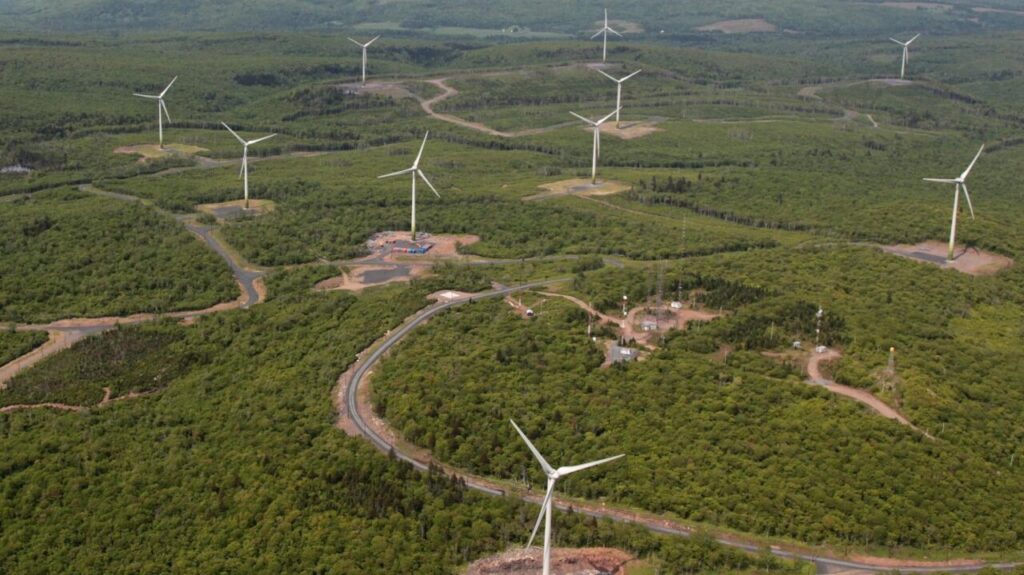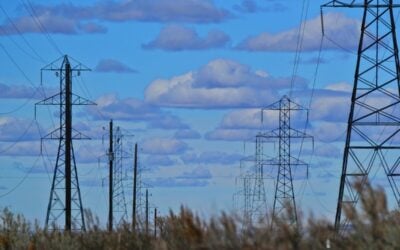
Regulators have approved a plan to build three large-scale battery storage facilities by NS Power, the monopoly electric utility for the province of Nova Scotia, Canada.
Nova Scotia Utility and Review Board (NSUARB) issued a decision last week (13 June), approving the utility’s request to invest in the capital cost of three 50MW, 4-hour duration (200MWh at each site) battery energy storage system (BESS) projects.
NS Power is privately owned by holding company Emera but is regulated by the province via NSUARB and must apply for regulatory approval for any capital spend over CA$1 million (US$0.73 million).
Capital cost to NS Power’s customer base will be a total of approximately CA$243 million. This comprises a portion of the total expected cost of the 150MW BESS buildout, which is CA$354 million, including Allowance of Funds Used During Construction (AFUDC), where the capital cost of financing construction is added to the total value of the assets.
Try Premium for just $1
- Full premium access for the first month at only $1
- Converts to an annual rate after 30 days unless cancelled
- Cancel anytime during the trial period
Premium Benefits
- Expert industry analysis and interviews
- Digital access to PV Tech Power journal
- Exclusive event discounts
Or get the full Premium subscription right away
Or continue reading this article for free
The Canadian federal government has also committed to contributing to financing the projects to the tune of CA$115.6 million, through Natural Resources Canada’s Smart Renewables and Electrification (SREP) programme which allows for up to a third of capital expenses up to CA$130 million to be funded.
BESS portfolio will enable integration of more than 1GW of wind
The 150MW/600MWh of battery storage will be sited at separate interconnection points to the grid, each asset with 50MW output to NS Power’s grid.
They will significantly contribute to the Atlantic Canadian province’s estimated need for around 300MW-400MW of energy storage by 2030, which will help Nova Scotia reach its 80% renewable energy policy target and coal power phaseout by that date.
With Nova Scotia still heavily reliant on coal-fired power generation, the provincial government’s clean energy plan unveiled in October last year found that renewable energy backed with storage would be the most cost-effective and fastest way to achieve decarbonisation goals.
Other options had included Atlantic Loop, a scheme to import hydroelectric power generated in Quebec, but the government modelled that renewables—mainly onshore wind—would be much cheaper and quicker to deploy.
Studies quoted by the Nova Scotia Department of Natural Resources and Renewables found the cost of onshore wind-plus-batteries to be between about CA$70-CA$100/MWh, onshore wind between CA$45-CA$60/MWh.
Atlantic Loop imports would cost about CA$200-CA$250/MWh and imports from neighbouring New Brunswick and Newfoundland about CA$150-CA$200/MWh. Atlantic Loop is still going ahead, but the Department considers it unlikely to be ready before the end of this decade, and its expected cost has spiralled upwards since 2020 from CA$3 billion to closer to CA$9 billion.
With this in mind, the Nova Scotian utility was ordered at the end of 2023 by the Department of Natural Resources and Renewables to procure the three lithium-ion (Li-ion) BESS assets.
The assets will enable the grid integration of more than 1,000MW of new wind resources, perform grid services and help manage the utility’s peak load.
NS Power then filed its 626-page capital cost approval application for the projects with NSUARB in late January 2024, with cost recovery to cover engineering, procurement and construction (EPC), commissioning and the start of commercial operation of the systems.
Legislative and regulatory groundwork was laid earlier last year with amendments to Nova Scotia’s Electricity Act that allowed NS Power to hold competitive solicitations to procure energy storage resources in March 2023.
Nova Scotia lacks access to good gas supply, being “at the end of the pipeline” in Canada, and jumping from coal directly to clean energy resources rather than coal to gas and then to clean energy would be the best “future-proofed approach,” independent consultant Patrick Bateman told Energy-Storage.news back in August 2023 as the province issued a progress report on its Environmental Goals and Climate Change Reduction Act legislation passed in 2021.
NSUARB’s decision can be read in full here (PDF).





